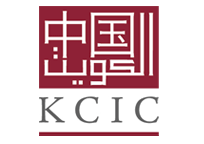By Andrew England in Abu Dhabi
A state-affiliated Kuwaiti company is set to join a growing list of entities from the oil-rich Gulf looking at investments in Asian agricultural land.
Ahmad al-Hamad, managing director of the Kuwait China Investment Company (KCIC), said it was considering investing in agribusinesses and in farms producing crops such as rice, wheat, corn and sorghum.
The purchase of overseas farmland - especially in Africa - by wealthy countries has become controversial over the past 18 months as food security has moved up the political agenda. Partly to address that, G8 leaders are today expected to announce a "food security initiative", committing more than $12bn (€8.5bn, £7.3bn) over the next three years to combat hunger in the developing world.
Unlike other Gulf investments in agriculture, intended to ensure food security for the import-dependent states, the focus of KCIC - part-owned by Kuwait's sovereign wealth fund - will be purely commercial.
"We think it is an opportune sector that will help Asia effectively become the bread basket of the world," Mr Hamad told the Financial Times. "We think food security, in the long term, is better served by collaborative investment in Asia as opposed to securing crops exclusively for one country."
KCIC was established in late 2005 to focus on investments in Asia and is 15 per cent owned by the Kuwait Investment Authority (KIA). It has a capital base of about $350m, with approximately 40 per cent held in cash.
The intention is that it will be a key investment vehicle for the KIA in Asia to take advantage of growing trade flows between the region and the Gulf, across sectors including property, infrastructure, energy and financial services.
Kuwait's interest in agriculture surfaced last year with a visit to Asia by the country's prime minister, during which it was reported that officials were talking with their Asian counterparts about securing food supplies.
Mr Hamad was part of the delegation. The KCIC is now looking at investment targets and if it moved ahead would look to form partnerships with international agribusiness specialists.
"Our financial skills would be paired with agri-sector skills and hopefully both of those skills can help mitigate some of the risks and provide a decent return for the investors," Mr Hamad said.
However, he said there had to be regulatory and policy reforms in Asia to ease foreign investment.
In the wake of last year's food crisis several Gulf states announced plans to invest in overseas land in an attempt to export the produce back to their home market to ensure food security. Saudi Arabia is at the forefront of such plans and recently announced a $800m company to support private-sector investment in overseas farms.
But the prospect of oil-rich Arab states exporting crops from poorer countries has sparked concern and warnings that such schemes could be risky.
Mr Hamad insisted the KCIC was seeking long- term trade ties. "We do not intend to run into food security issues, hence we want to invest only where there is both a clear potential for improving productivity and a low production volatility," he said.
KCIC, meanwhile, sees its opportunities in agriculture as part of a broader desire to tap into what it describes as the emergence of a "new silk road" between Asia and the Gulf.
"In Asia, home to 4bn people, or 60 per cent of the world's population, the push to stimulate internal consumption is going to create appealing investment opportunities in the fields of agribusiness, energy, infrastructure, real estate and financial services," said Alessandro Magnoli Bocchi, KCIC's chief economist.












